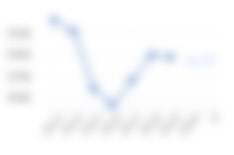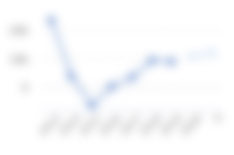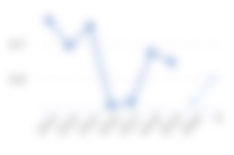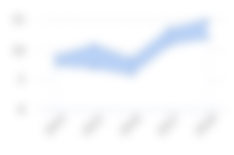PMI — Picard Medical Share Price
- $138.56m
- $135.85m
- $4.39m
Growth & Value
| 12m Forecast Rolling | Industry | Market | |
|---|---|---|---|
| PE Ratio (f) | n/a | ||
| PEG Ratio (f) | n/a | ||
| EPS Growth (f) | n/a | ||
| Dividend Yield (f) | n/a | ||
| Valuation (ttm) | Industry | Market | |
|---|---|---|---|
| Price to Book Value | n/a | ||
| Price to Tang. Book | n/a | ||
| Price to Free Cashflow | n/a | ||
| Price to Sales | 29.02 | ||
| EV to EBITDA | n/a | ||
Shareholder Activity
| Type | Buy / Hold / Sell |
|---|---|
| Institutions | |
| Directors | |
| Community |
Guru Screens
Quality
| Name | Industry | Market | |
|---|---|---|---|
| Return on Capital | -169.69% | ||
| Return on Equity | n/a | ||
| Operating Margin | -289.61% | ||
Financial Summary
| Year End 31st Dec | Unit | 2020 | 2021 | 2022 | 2023 | 2024 | 2025E | 2026E | CAGR / Avg |
|---|---|---|---|---|---|---|---|---|---|
| Total Revenue | $m | n/a | n/a | 4.11 | 5.04 | 4.39 | n/a | n/a | 3.32% |
| Operating Profit | m | ||||||||
| Net Profit | m | ||||||||
| EPS Reported | |||||||||
| Diluted Normalised EPS | |||||||||
| EPS Growth | % | n/a | n/a | n/a | n/a | n/a | n/a | n/a | n/a |
| PE Ratio | x | ||||||||
| PEG | |||||||||
| Profitability | |||||||||
| Operating Margin | % | ||||||||
| ROA | % | ||||||||
| ROCE | % | ||||||||
| ROE | % | ||||||||
| Cashflow | |||||||||
| Op. Cashflow ps | |||||||||
| Capex ps | |||||||||
| Free Cashflow ps | |||||||||
| Dividends | |||||||||
| Dividend ps | |||||||||
| Dividend Growth | % | ||||||||
| Dividend Yield | % | ||||||||
| Dividend Cover | x | ||||||||
| Balance Sheet | |||||||||
| Cash etc | m | ||||||||
| Working Capital | m | ||||||||
| NFA | m | ||||||||
| Net Debt | m | ||||||||
| Book Value | m | ||||||||
| Diluted Weighted Average Shares | m | ||||||||
| Book Value ps | |||||||||
Other Ratios
| Leverage (ttm) | Total | - Intang | + Pension |
|---|---|---|---|
| Gross Gearing | |||
| Net Gearing | |||
| Cash / Assets |
| Liquidity (ttm) | |
|---|---|
| Curr. Ratio | |
| Quick Ratio | |
| Interest Cov. | |
| Efficiency (ttm) | |
|---|---|
| Asset Turnover | |
| Recs Turnover | |
| Stock Turnover | |
Recent History
| Latest interim period vs. prior period | Industry | Market | |
|---|---|---|---|
| Sales Growth | |||
| EPS Growth | |||
| 3yr Compound Annual Growth Rate | Industry | Market | |
|---|---|---|---|
| Sales CAGR | |||
| EPS CAGR | |||
| DPS CAGR | |||
Profile Summary
Picard Medical, Inc. is a holding company that owns a 100% interest in SynCardia Systems, LLC (SynCardia). SynCardia is a medical technology company that manufactures and sells the only United States Food and Drug Administration (FDA) and Health Canada-approved implantable total artificial heart (SynCardia TAH). The SynCardia TAH is a biventricular replacement device that consists of the SynCardia TAH implant, an external pneumatic driver that delivers precisely calibrated pulses of air to drive the implant, and drivelines that connect the driver to the implant. The SynCardia TAH implant is a system that consists of two independent artificial ventricles which are powered by an external pneumatic driver. Each artificial ventricle is made of a semi-rigid polyurethane housing and a rigid polyurethane base, with a four-layer flexible polyurethane diaphragm separating the blood chamber from the air chamber.
Directors
- Last Annual
- December 31st, 2024
- Last Interim
- September 30th, 2025
- Incorporated
- April 8th, 2021
- Public Since
- August 29th, 2025
- No. of Employees
- 75
- Sector
- Healthcare Equipment & Supplies
- Industry
- Healthcare
- Exchange
NYSE MKT
- Shares in Issue
- 73,701,176

- Address
- 1992 E. Silverlake Rd., TUCSON, 85713
- Web
- Phone
- +1 5203080796
- Auditors
- Malone Bailey, LLP
Upcoming Events for PMI
Similar to PMI
Acme United
NYSE MKT
Alpha Pro Tech
NYSE MKT
Catheter Precision
NYSE MKT
Electromed
NYSE MKT
Infusystem Holdings
NYSE MKT
FAQ
As of Today at 21:39 UTC, shares in Picard Medical are trading at $1.88. This share price information is delayed by 15 minutes.
Shares in Picard Medical last closed at $1.88 and the price had moved by over the past 365 days. In terms of relative price strength the Picard Medical share price has matched the S&P500 Index by over the past year.
There is no consensus recommendation for this security.
Find out morePicard Medical does not currently pay a dividend.
Picard Medical does not currently pay a dividend.
Picard Medical does not currently pay a dividend.
To buy shares in Picard Medical you'll need a share-dealing account with an online or offline stock broker. Once you have opened your account and transferred funds into it, you'll be able to search and select shares to buy and sell. You can use Stockopedia’s share research software to help you find the the kinds of shares that suit your investment strategy and objectives.
As of the previous close price of $1.88, shares in Picard Medical had a market capitalisation of $138.56m.
Here are the trading details for Picard Medical:
- Country of listing: United States
- Exchange: ASQ
- Ticker Symbol: PMI
Based on an overall assessment of its quality, value and momentum Picard Medical is currently classified as a Sucker Stock. The classification is based on a composite score that examines a wide range of fundamental and technical measures. Stock are classified on the the following spectrum: Super Stocks, High Flyers, Contrarians, Turnarounds, Neutral, Value Traps, Momentum Traps, Falling Stars, and Sucker Stocks. For more information, learn about our StockRank Styles.
We could not find analyst target price data for this security.
Find out moreAn important predictor of whether a stock price will go up is its track record of momentum. Price trends tend to persist, so it's worth looking at them when it comes to a share like Picard Medical. Over the past six months, its share price has matched the S&P500 Index by .
As of the last closing price of $1.88, shares in Picard Medical were trading -58.34% below their 200 day moving average. You can read more about the power of momentum in assessing share price movements on Stockopedia.
The Picard Medical PE ratio based on its reported earnings over the past 12 months is null. The shares last closed at $1.88.
The PE ratio (or price-to-earnings ratio) is the one of the most popular valuation measures used by stock market investors. It is calculated by dividing a company's price per share by its earnings per share.
The PE ratio can be seen as being expressed in years, in the sense that it shows the number of years of earnings which would be required to pay back the purchase price, ignoring inflation. So in general terms, the higher the PE, the more expensive the stock is.
We do not have data on Picard Medical's directors





